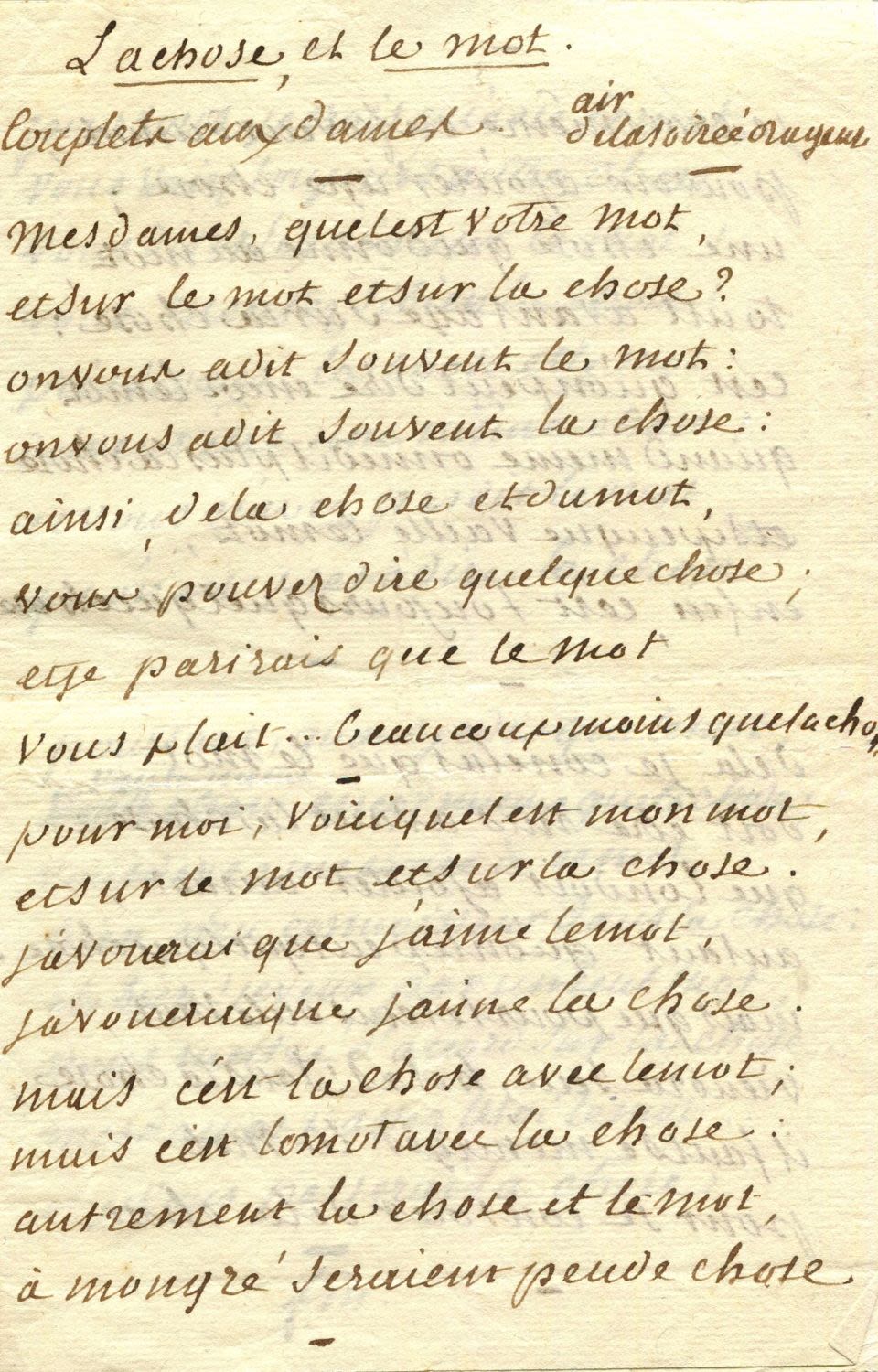|
LOT 957:
more...
|
|


|
Sold for: €600
Start price:
€
600
Estimated price :
€600 - €900
Buyer's Premium: 25.5%
VAT: 17%
On commission only
Users from foreign countries may be exempted from tax payments, according to the relevant tax regulations
|
CHAUVEAU-LAGARDE CLAUDE FRANÇOIS: (1756-1841) French Lawyer. He became notable in the early stages of the French Revolution defending very important cases during the Reign of Terror, including that of Brissot, Bailly, Madame Roland and the Queen Marie Antoinette. A very rare and unusual A.L., being an autograph poem, three pages, 8vo, n.p., n.d., in French. The lengthy and libertine autograph poem is entitled “La Chose et le Mot” (“The Thing and the Word”), contains 48 verses, and plays amusingly with the two title words, stating in part `Madame quel est votre mot, - Et sur le mot et sur la chose - On vous a dit souvent le mot - On vous a fait souvent la chose… - Et je gagerais que le mot - Vous plait beaucoup moins que la chose… Et que pour le jour où le mot - Viendra seul hélas sans la chose - Il faut réserver le mot - Pour se consoler de la chose… Vous dites si gaiement le mot - Vous méritez si bien la chose…´ Very small tear to the second page only affecting one word partially, otherwise VG
After defending zealously Marie Antoinette the Comité de Sûreté Générale became suspicious, and once sentence had been pronounced on the Queen, he was summoned before the committee and accused of having defended her all too well.
Chauveau-Lagarde defended in 1793 the Venezuelan General Francisco de Miranda before a revolutionary tribunal. Thanks to his effective plea, Miranda was acquitted, However, Jean-Paul Marat denounced Chauveau-Lagarde as a liberator of the guilty General.
In 1794 and following the passage of the Draconian law which suppressed the role of lawyers for the defence of those accused before the tribunals, he was arrested, accused of demonstrating too much leniency towards counter-revolutionaries. His arrest warrant specified his appearance before the Revolutionary Tribunal in three days, but he remained discreetly in detention for six weeks, which saved him from the guillotine.


